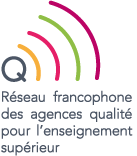The Commission des titres d’ingénieur (CTI) was established by Law in 1934 (French Education Code, Article L.642-2 and following). In France, the CTI is the relevant body in charge of carrying out evaluation procedures that lead to the accreditation of the institutions to award the engineering degree “titre d’ingénieur diplômé”.
The various missions of the CTI have evolved over the years, and currently include:
- Periodic evaluation of all French higher education institutions offering master level programmes in engineering, that leads to the accreditation of the institutions to award the engineering degree.
The CTI is responsible for accreditation decisions for private institutions and those run by Chambers of Commerce; it issues recommendations to the relevant ministries for public owned higher education institutions.
On request and subject to the support of the relevant authorities in the host countries, the CTI can also carry out evaluation procedures of engineering programmes provided by French institutions on their campuses abroad, in order to extend the accreditation to the foreign site. - On request of the institutions and agreement of relevant governments, evaluation of foreign higher education institutions. The positive outcome of a CTI procedure may lead to the recognition of their engineering degrees at master’s level in France (‘‘Admission par l’Etat’’). This recognition is granted by the French Ministry of Higher Education.
- Defining the generic profile of the engineer at master’s level and drawing up criteria and procedures for awarding the engineering degree and for carrying out the CTI’s missions. The CTI thus contributes to the continuing development of engineering education, adapting it to the needs of industry and society as a whole.
- Issuing opinions on all topics regarding the French engineering education.
These “historical” missions have been extended with the increasing internationalisation of higher education and with the establishment of the European Higher Education Area, in which the CTI plays a role in its areas of proficiency (engineering education and quality assurance). Thanks to its recognition by bodies such as the European Association for Quality Assurance in Higher Education (ENQA) or the European Quality Assurance Register (EQAR), the CTI has become the main player in implementing the Bologna Process within French engineering schools. - Since 2020, the CTI is in charge of the evaluation of French institutional Bachelor degrees in order to grant them the academic grade of “licence”.
- Developing a quality assurance culture within French engineering schools and the CTI itself, in line with the Standards and Guidelines for Quality Assurance in the European Higher Education Area (ESG) adopted by the Ministers of Higher Education of the European Higher Education Area. In this context, the CTI cooperates with other French and international quality assurance agencies, either under bilateral agreements (for example with ABET, AEQES, AAQ, CEFDG, Hcéres, ANEAQ and others) or in networks such as FrAQ-Sup, ECA and ENAEE.
- Any actions to promote the academic and professional recognition of the French engineering degree. Since the engineering profession is not regulated in France and there is no institution of chartered engineers, the CTI is the natural point of contact for foreign engineering bodies (often in coordination with IESF, Ingénieurs et Scientifiques de France). The CTI is a member of various European and international networks and associations, and in this capacity has signed co-operation and mutual recognition agreements with other quality assurance agencies and institutions of chartered engineers.
- Evaluation of French and foreign engineering programmes in order to award quality labels. The CTI is a founding member of the European Network for Accreditation of Engineering Education (ENAEE) and is authorized to award its European quality label for engineering degree programmes EUR-ACE® (master’s level). The CTI is also a member of the European Consortium for Accreditation (ECA) and is involved in awarding its Certificate for Quality in Internationalisation (CeQuInt).

